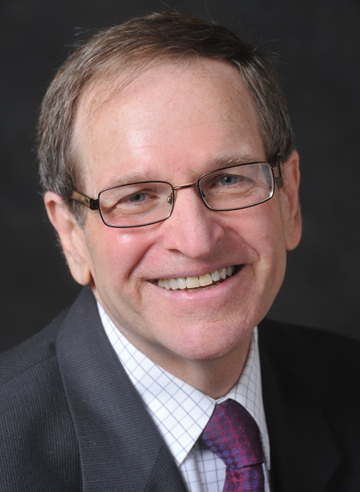 Congregation Beth Torah’s scholar in residence, Ron Wolfson, will be talking to clergy, staff, the board and the congregation about relational Judaism and what a relational synagogue would be like.
Congregation Beth Torah’s scholar in residence, Ron Wolfson, will be talking to clergy, staff, the board and the congregation about relational Judaism and what a relational synagogue would be like.
Wolfson is the Fingerhut professor of education in the Graduate Center for Jewish Education at the American Jewish University in Los Angeles.
He will work closely with the board and staff members the mornings of Dec. 6 and 7 on building connections, which he sees as three tiers: building a stronger connection to the Jewish experience itself; connecting to the representatives of the community; and connecting to each other.
The first challenge, building relationships between Jews and the Jewish experience, is “what we’re in business for, to help people find a path to meaning, purpose, what am I supposed to do, a sense of belonging and a place to celebrate the many blessings in our lives,” Wolfson said. “That’s the vision of a synagogue.”
The second tier is creating relationships between the clergy, the educators, the staff of the synagogue and the members and guests.
“We have to do a lot better job of making sure that people have a connection to the senior representatives of the community, the lay leadership, the board,” he said. “Anyone who represents the congregation, I as a member sitting in a pew should know somebody and somebody should know me.”
And finally, what Wolfson said is the most important is to create relationships among the people themselves — the members and the guests. “That’s the most challenging part of doing this.”
Wolfson has visited hundreds of congregations all over the world, Jewish and non-Jewish, and he said only 10 to 40 percent of the people feel like they are very deeply connected to the life of the congregation. Those are the regulars who attend religious services regularly, they’re volunteers, they serve on committees and boards.
He said the problem in the Jewish community is that many people join a synagogue when their children need a Jewish education and after that they move to the periphery of the community and only attend services once or twice a year.
“It’s hard to sustain that long-term [commitment] and that’s why many synagogues in America today are losing members,” he said.
Wolfson went on to say that younger people are not joining synagogues — millennials are suspicious of institutional affiliation of any kind. Why would they go to a congregation that barely knows them?
He said the elderly often feel like they’ve done their part. They’re spending their years in Florida or there’s not a lot of programming for them because so much of synagogue life is focused on families with young children.
All of this is addressed in Wolfson’s 2013 book, “Relational Judaism,” which he will talk to the congregation about on Dec. 7. He said the book is a “must read” among many Jewish organizations, not just synagogues.
Wolfson said many congregations depend on programs of various kinds to engage their members. But this becomes merely a transactional relationship with the congregation. If you pay your membership dues, you get a seat for the High Holy Days, Bar and Bat Mitzvah training for your children, a rabbi on call and various invitations for programs.
“My point in relational Judaism is that we have to go much deeper than that and create a more engaging relationship between the clergy, the staff and the members, and amongst the members themselves,” he said. “They have a community of people who will be there for them in good times and bad. That’s a relational community.”
Wolfson envisions a relational synagogue as a place where you’re warmly welcomed, where everyone knows everyone else’s name, where friendships are formed, where the clergy and the staff know everyone.
“And by know everyone I mean not just their names, but their passions, their talents, their history, their stories,” he said. “By knowing those things there’s an invitation to each person in the community, young and old, to be engaged deeply in the life of the community.
“[They] add up to the ambience of the place — where the food is excellent, the programs are excellent, the music is excellent, child care is excellent. It’s a dynamic forward-looking relational place where everyone who walks in, member or guest, is treated like a long-lost friend. Some places are doing it.”
At the Dec. 8 Simchat Shabbat at Beth Torah, Wolfson will talk about “The Seven Questions You’re Asked in Heaven,” also based on a book he wrote of the same title. The subtitle of the book is “Reviewing and Renewing Your Life on Earth.”
“The idea of the book is exploring the questions that over the centuries rabbis imagined you are asked when you get to the Pearly Gates,” he said.
The purpose of the questions is not to get an admission slip into heaven, but to review how you lived your life while you were here on Earth, Wolfson said.
Not wanting to give away his whole discussion, Wolfson said he would “tease” the audience with one of the questions: Did you live with hope in your heart or did you live your life in fear?
“The questions are very deep and I’ll be telling stories that try to get underneath the purpose of the questions — why did the rabbis ask these questions, what were they really trying to get us to think about. These are based on a Talmud text primarily and people who love Torah study will love this presentation,” he said.
Wolfson added that he is excited to be visiting here. He’s from Omaha, Nebraska, so while he lives in Los Angeles, his heart is in the Midwest.


